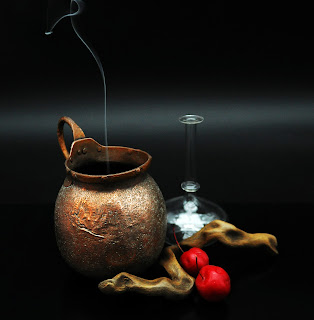Are you aware of the fact that during the 1800s, some journalists noticed that Copper mine workers are immune to Cholera without taking any prevention or medical treatment? Yes, it was the first noticeable impression of Copper Magic on the Human body. However, Copper contains antimicrobial, anti-inflammatory, anti-carcinogenic, antioxidant, and anti-bacterial properties. Isn't it too magnetic to be healthy?
Health is the new trend! Nowadays, We can easily spot a person with a Copper water bottle as Ayurveda is gaining huge popularity in common citizens as well as in youths. But,
"Is it safe to drink Water from Copper Bottles?" ⚠️
The straight and clear-cut answer to that question is, Yes. But What are the benefits of drinking water from a copper water bottle?
& Why should Copper be a part of our daily intake? benefits of drinking water in copper bottles
A healthy human body requires a small amount of copper to function effectively, As Copper helps :
- To generate heat in the human body.
- Assists in the interaction between different cells.
- Hemoglobin breaks down certain foods to prepare and boost metabolism.
As a matter of fact, a Deficiency of copper may cause severe health problems as well, like anaemia and parasitic infection in our body. Copper is rich in medicinal properties, which aid in the formation of haemoglobin as well as cell regeneration. But unfortunately, the human body cannot manufacture trace amounts of copper. So copper must be part of our intake either through food or water.
Copper is a super metal. As far as its benefits are considered, not only for the human body but also for the environment. It is an inexpensive metal, available in large quantities and easy to recycle.
When I was a kid I was really excited about the place when we had a big copper house in our house. My grandfather used to say that drinking water from copper bottles is very beneficial for health. My grandfather used to tell many benefits of copper.
Copper utensils are often considered a healthy option for cooking and serving cookware. Copper has the property of retaining the heat of the food for a long time. On the other hand, it is not advisable to cook salty food in copper utensils because the iodine in salty foods can quickly react with copper. Therefore, Precautions should be taken while handling cooking with copper utensils. But, When it comes to water, besides working as a cooling thermal, copper is a great medium of drinking water.
10 Health benefits of drinking water in Copper bottle
1. Prevent Cancer
Cancer has become a very common disease in the society. Copper Water is an excellent source of antioxidants, which can combat free radicals responsible for tumours and stimulate cancer cells. If you are often exposed to the sun's rays, do not forget to carry a copper water bottle. Because the water stored in it produces melanin, which is a natural skin pigment and protects the skin from harmful ultraviolet rays of the sun.
2. Reduces the effects of ageing and Wrinkles
Copper is rich in antioxidants, and it is known in rebuilding cells. Its ability to fight free radicals inhibits the ageing process very effectively. No wonder Ancient kings have copper utensils!
3. Good for Digestion
Drinking water from copper utensils promotes digestion. It helps in flushing out toxins, Killing bad bacteria, Reducing abdominal bloating and improving metabolism. Copper is a great remedy for stomach ulcers, indigestion, and stomach infections.
4. Increases brain function
The human brain communicates with the rest of the body through electrical impulses, and studies have shown that a glass of water from a copper bottle stimulates its functioning in the body. It balances hormones and generates positive thoughts.
5. Helps in the functioning of the thyroid gland
The thyroid is a small butterfly-shaped gland that helps in the production of various hormonal functions. Hormone imbalances can create Havoc in your life, and Fortunately, Water infused with the goodness of copper can cure thyroid dysfunction by combating the harmful effects of excessive hormone secretion from the thyroid gland. Although Deficiency/excess amounts of copper can damage your thyroid gland, it can be said that the Balance of good or bad between thyroid and copper depends on a very thin thread.
6. Fights Infection
Although copper is a metal, it contains a natural antibiotic. When this metal comes in contact with harmful microbes on a surface or in water, it destroys it immediately.
Copper is effective against germs that cause cholera, or other water-borne diseases. Water stored in copper bottles for more than 8 hours is free of all microvilli. It is also helpful in removing throat infections.
7. Heals Arthritis and Swollen Joints
Copper provides great relief to patients suffering from arthritis and rheumatoid arthritis. Additionally, copper has bone-strengthening and immune-system-strengthening properties.
8. Prevents Stroke
Copper helps clear out plaque, as well as dilates blood vessels to increase blood flow to the heart. Copper water also lowers bad cholesterol and triglycerides. It also has anti-convulsive properties which prevent seizures.
9. Copper Water Helps in Weight Loss
Try drinking water from a copper water bottle regularly. Why? Copper plays a very active role in your digestive system. Aside from fine-tuning your digestive system to perform better, copper also helps the body break down fat as well as eliminate it more efficiently. However, Copper helps to reduce fat but that doesn't means too much copper will reduce excess fat or end up providing you a lean physique. Caution, too much copper can act as a poison to the human body. ⚠️
10. Copper Heals Wounds
Copper has natural properties such as antibacterial, anti-inflammatory and antiviral. It also aids in skin regeneration and strengthens the immune system, which helps wounds to heal faster.
Copper-rich foods
One easy way to make sure you’re getting enough copper is to eat foods that contain it. You can find copper in shellfish and organ meats, like liver.
You can also get a good amount of copper by eating vegetables, grains, and seeds, like:
- potatoes
- peas
- beans
- green vegetables
- whole grains
- sunflower seeds
Peanut butter and dark chocolate also contain copper.
Also Read, Top 10 Iron-Rich Foods
The tradition of drinking water and eating food with copper utensils has been going on for centuries. Waking up in the morning on an empty stomach, drinking water from a copper vessel is considered very good for our health.
You know the benefits of drinking water in a copper bottle, but do you know that drinking water in a copper bottle also has some side effects.
3 Foods that are poisonous when stored in Copper Vessel
Buttermilk
It is well known that buttermilk is created by curd, and the consumption of buttermilk provides tremendous benefits to our body's health. But if you consume buttermilk by keeping it in a copper vessel, then it can be very harmful to your health. Buttermilk contains a variety of properties, which react with copper and smells tragic and within hours it becomes stale.
Sour things
Do not consume sour things like pickles, sauces, James, and juices, if they're stored in a copper vessel. Such things react with copper utensils. These foods react with the copper and can cause weakness, nausea or even depression, over time.
Lemonade
If you consume lemonade by keeping it in a copper vessel, then it can prove to be very harmful to your health. Acid is present inside the lemon, which reacts adversely to health by mixing with copper. If you consume lemonade with a copper glass, then you may have problems like vomiting, stomach pain, and gas.
Recommendations:
Conclusion
In conclusion, the use of copper for its health benefits has a long history, dating back to the 1800s when journalists noticed that copper mine workers were immune to cholera without any medical intervention. Copper's antimicrobial, anti-inflammatory, antioxidant and other beneficial properties make it a compelling choice for promoting overall well-being. Drinking water from a copper bottle has gained popularity, and its numerous advantages have attracted attention. However, it is essential to use copper with caution and awareness, as certain foods and beverages can interact negatively with the metal, leading to potential side effects.
FAQs
Is it safe to drink water from a copper bottle?
Yes, drinking water from a copper bottle is safe and offers numerous health benefits. Copper-infused water can have antioxidant properties and promote digestion, brain function, thyroid health, and wound healing, among other advantages.
What are the benefits of drinking water from a copper water bottle?
The benefits of drinking water from a copper bottle are manifold. Some of the key advantages include cancer prevention, reduced ageing effects and wrinkles, improved digestion, enhanced brain function, thyroid gland support, infection-fighting abilities, relief from arthritis and swollen joints, stroke prevention, assistance in weight loss, and faster wound healing.
Why should copper be a part of our daily intake?
Copper plays a crucial role in the human body, aiding in heat generation, cell interaction, haemoglobin formation, and metabolism. A deficiency of copper can lead to health issues like anaemia and parasitic infections. Since our bodies cannot produce trace amounts of copper, it is essential to include copper in our daily intake of food or water.
Are there any precautions to consider while using copper utensils or bottles?
While using copper utensils or bottles, some precautions should be taken. Avoid cooking salty foods in copper utensils, as the iodine in salty foods can react with copper. Additionally, certain foods like buttermilk, sour items, and lemonade should not be stored or consumed in copper vessels, as they can react adversely with the metal and cause health problems like staleness, weakness, nausea, or gas.


.webp)





